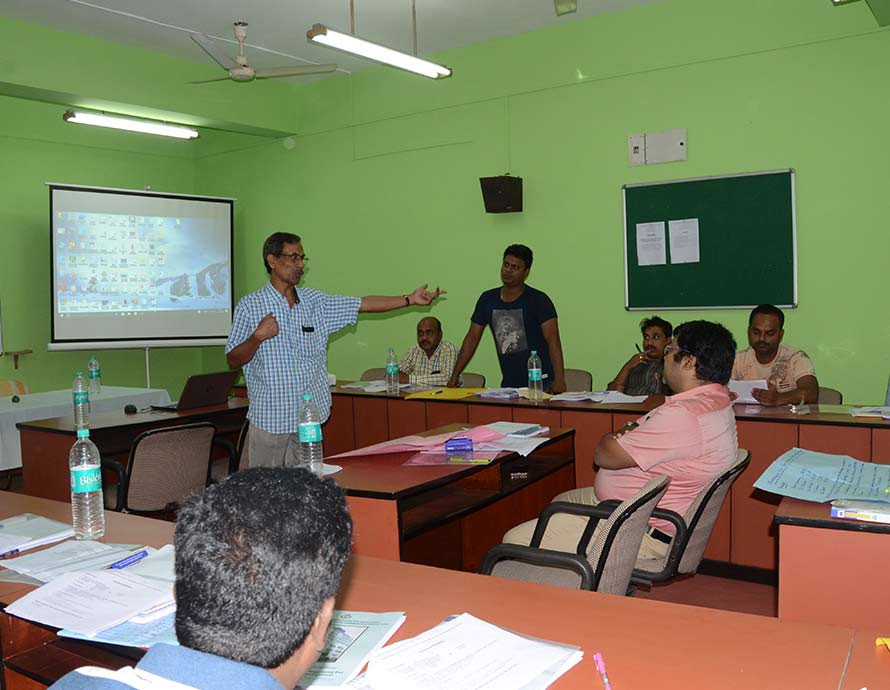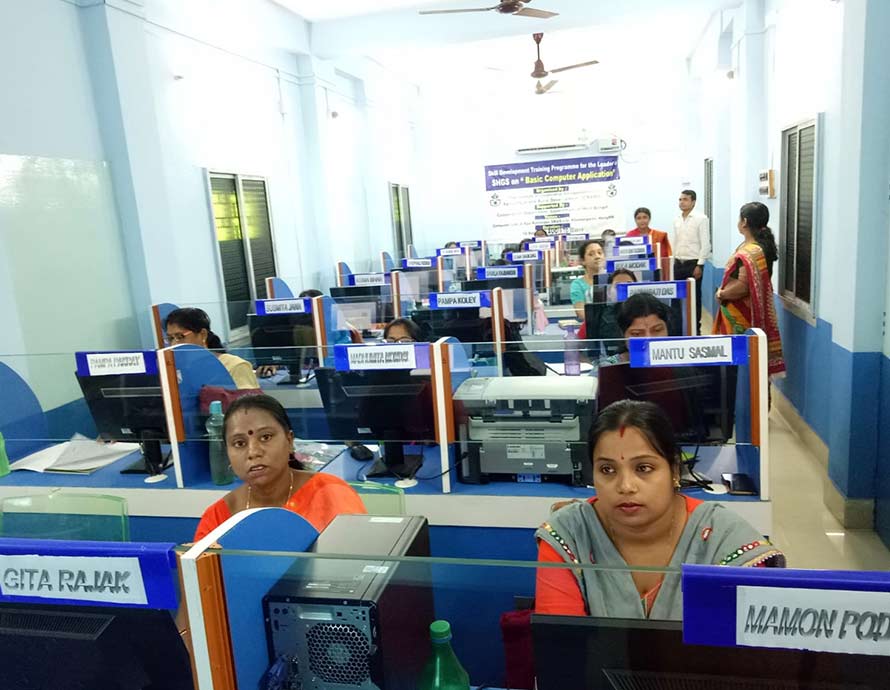The Institute of Co-operative Management for Agriculture & Rural Development (ICMARD) is an apex training institute in cooperative sector of West Bengal working under the parent organisation of The WBSCARD Bank Ltd. Since its inception in 1997, ICMARD has curved a niche in the cooperative sector with its all-round performance in training and capacity building programmes. The institute has been accredited by the Centre of Professional Excellence in Cooperatives (C-PEC), the training wing of Bankers Institute of Rural Development (BIRD), Lucknow (An autonomous Society promoted by NABARD).

ABOUT ICMARD
Genesis
The agricultural co-operative credit system in the country is more than a century old which consists of three types of functioning viz. Short Term Sector (STCCS), Long Term Sector (LTCCS) and Urban Co-operative Credit System (UCCS). The institutions at the grass root level in the long term sector formerly known as Land Mortgage Banks (LMB) and at the State/Apex Level as SLMB are now known as Co-operative Agriculture & Rural Development Banks (PCARDBs) and at the State/Apex as SCARDB. Earlier these institutions used to provide various types of credit facilities, mainly investment credit to the borrowers with refinance facilities from Agricultural Refinance Corporation (ARC) and then from Agriculture & Rural Development Corporation (ARDC) and thereafter from NABARD after its establishment in 1982. With the passage of time, the institutions in the LTCCS mostly run by separate board of management are drawn to stiff competition with other institutions doing similar activities namely Commercial Banks, Regional Rural Banks and even the PACS which are extending loans of long duration repayment period like the PCARDBs.
In our State, the West Bengal State Co-operative Agriculture & Rural Development Bank Ltd. (WBSCARD) is engaged in catering long-term co-operative credit for agriculture and rural development in our State with the involvement of two own branches at Purulia and Darjeeling districts and 24 member Primary Cooperative Agriculture Rural Development Banks spread in the rest of other districts.


THE JUNIOR LEVEL TRAINING INSTITUTE
In the early 70s of the last century, a new era had started in the cooperative agricultural and rural development banking sector of the country when these banking institutions were allowed to refinance the fund reimbursed from various government agencies. In the changing business scenario, training and capacity building of the staff in the cooperative sector emerged as a mandatory requirement. As a result many of the LDBs in the country took initiative to establish their own staff training institutes under the financial assistance of ARDC.
The first Junior Level Training Centre was established by the WBSCARD Bank Ltd. (known as Land Development Bank back then) in the year 1976 in Uttarpara. Within few years the JLTC started organising training programmes throughout the years for all types of cooperative banks and institutes in the state. Afterwards, the JLTC started to be funded by NABARD.
AGRICULTURAL COOPERATIVE STAFF TRAINING INSTITUTE
In 1980s The National Cooperative Development Corporation (NCDC) took responsibility to finance gowdowns and cold storages in the state of West Bangal under the NCDC scheme. The WBSCARD Bank Ltd. was selected for the implementation of the plan.
It was essential for the godwons and cold storages established under this project to have efficient manpower for running their business and achieve profitability.
Hence, the second phase of the training institute (ACSTI) for training the employees of the cooperative societies was established by WBSCARD Bank Ltd. in Paikpara, Kolkata under financial assistance of NCDC. Subsequently, in 1990s the ACSTI was shifted to its present location, Ultadanga, at its own premises.
In 1997, the JLTC and the ACSTI were merged to form the Institute of Co-operative Management for Agriculture & Rural Development (ICMARD) in 1997. At the present juncture ICMARD has a pivotal role for the success of entire cooperative sector in the state, the LTCCS in particular.



